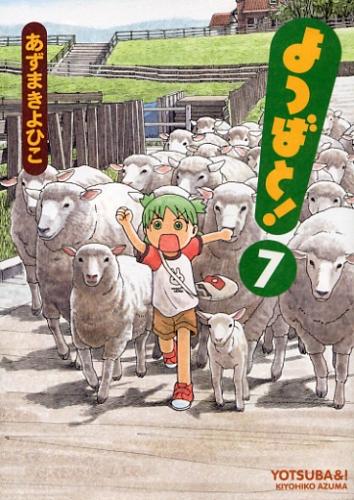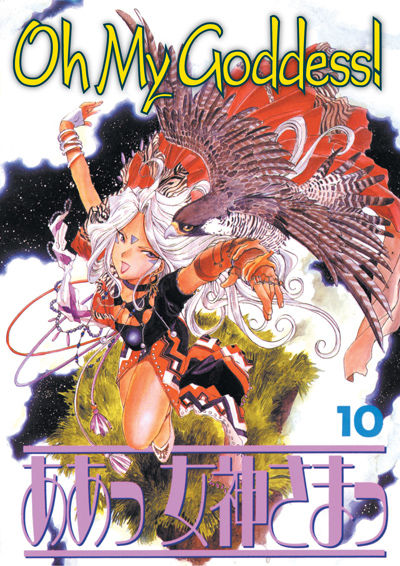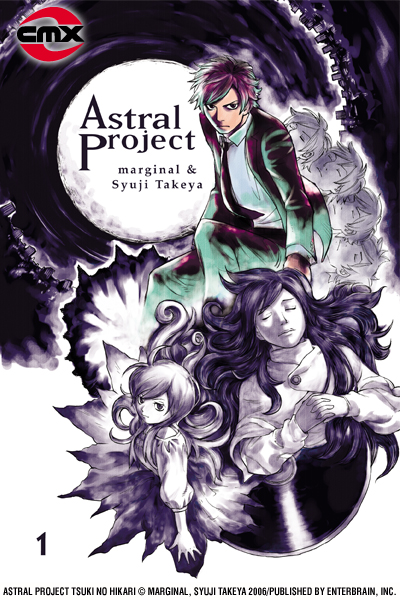Over at Publisher’s Weekly Comics Week, I talked to Kurt Hassler of Yen Press and Joe Monti of Little, Brown Books for Young People about their plans for The Melancholy of Haruhi Suzumiya, both the manga and the novels. The interesting part is that they are marketing the novels to the mainstream, not just the otaku crowd, in hopes that Haruhiism will catch on.
Manga makes the New York Times, with a mention of the unlicensed title Drops of the Gods in a piece on wine in today’s paper. This follows on an article that ran a couple of weeks ago that mentioned an anime in which the character made bread in a rice machine. Yakitate Japan, anyone?
Also, at Good Comics for Kids, which I edit, manga maven Robin Brenner lists the top-circulating manga and graphic novels in her library system and hosts a group discussion with other librarians of why some titles are more popular than others. The results may surprise you: The Wallflower is the top pick in Robin’s public library system. Also at SLJ: Lori Henderson lists last week’s new all-ages comics and manga.
Pink Kryptonite posts this week’s new manga.
The Taiwan News interviews manga-ka Naoki Urasawa and director Yukihiko Tsutsumi, who will be bringing Urasawa’s 20th Century Boys to the big screen. Urasawa is better known here for Monster, but Viz will be publishing 20th Century Boys starting in January. (Via Deb Aoki’s blog.)
So’s your face! Translators Athena and Alethea Nibley argue about literal versus idiomatic translations at Manga Life.
Matt Blind continues his analysis of last summer’s manga sales with a look at Viz manga and individual publishers’ rankings.
Icarus Comics (NSFW) is going to give Google Reader a try.
Yet another prosecutor tries to link manga and murder, this one in Perugia, Italy:
The prosecutor also made specific references in court to rocker Marilyn Manson and the violent, sexually charged Japanese “Manga” comics Sollecito was fond of, Biscotti said.
The lawyer pointed out that an issue of the comics taken from Sollecito’s apartment tells a tale of killing female vampires on Halloween night and includes gruesome details that were similar to the scene police discovered.
German blogger Jonathan posts his October shopping list at Manly Manga and More.
News from Japan: Oh My Goddess creator Kousuke Fujishima will launch a new manga, Paradise Residence, in the premiere issue of good! Afternoon magazine, due out on November 7. Kenji Tsuruta, creator of Spirit of Wonder, is drawing a manga adaptation of the Sasurai Emanon novels. And Osamu Tezuka’s old school unveiled a giant Astro Boy statue in his honor.
Reviews: Lori Henderson reviews the kid-friendly title Cowa! at Good Comics for Kids. Sam Kusek reads vol. 1 of The Mysterians, his first global manga, at Manga Recon. Let’s Fall Asleep takes a look at one of my favorite titles, vol. 1 of After School Nightmare. Katherine Farmar reads Future Lovers at Comics Village. Kristin, the teen librarian at the Glendale Public Library, gives her take on Crescent Moon and Fruits Basket, and a couple of teens chime in as well. Connie checks out vol. 1 of Faust and vol. 10 of Hino Horror at Slightly Biased Manga. At Boys Next Door, Cynthia reviews vol. 11 of Love Mode, Romantic Illusions, and Lover’s Pledge. James Fleenor checks out vol. 1 of Afro Samurai at Anime Sentinel. New at Active Anime: Sandra Scholes on vol. 1 of Saihoshi the Guardian, Rachel Bentham on Falling Into Love, and Scott Campbell on vol. 2 of Gantz. And at Manga Life, Joy Kim reviews vol. 3 of Two Flowers for the Dragon, Ysabet Reinhardt MacFarlane checks out vol. 11 of Kaze Hikaru, and David Rasmussen dives into vol. 1 of the special collectors edition of Neon Genesis Evangelion and finds it most excellent. Johanna Draper Carlson recommends vol. 6 of High School Debut at Comics Worth Reading. Lissa Pattillo enjoys vol. 7 of Kurosagi Corpse Delivery Service at Kuriousity. Julie reviews vol. 1 of Nora: The Last Chronicle of Devildom at the Manga Maniac Cafe. Emily checks out the untranslated title Holiday at Emily’s Random Shoujo Manga Page. Michelle Smith reads vol. 1 of Banana Fish at Soliloquy in Blue. Dave Ferraro has good things to say about Solanin! at Comics-and-More. And at Manic About Manga, blogger Kris lives up to her title with reviews of Flamboyant, vol. 3 of Kiss All the Boys, Sweet Regard, Today’s Ulterior Motives, Golden Prince and Argent King, Millennium Darling 2006, A Gentleman’s Kiss, vol. 1 of Clear Skies, One Night Lesson, Shy Intentions, vols. 1 and 2 of Roureville, vol. 1 of Hitohira, vol. 2 of Red Angel, vol. 1 of Sunflower, Total Surrender, and Love for Dessert.




